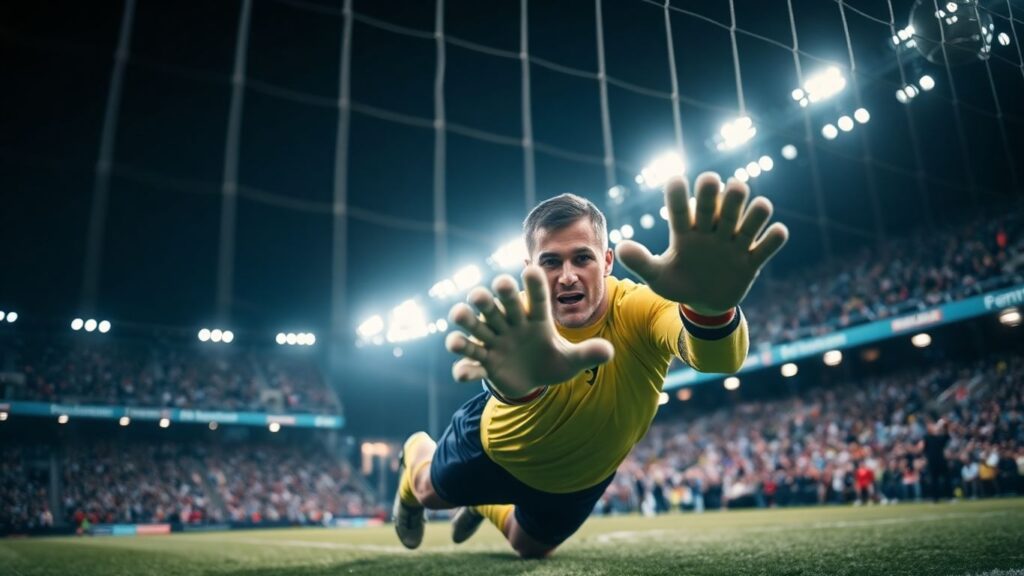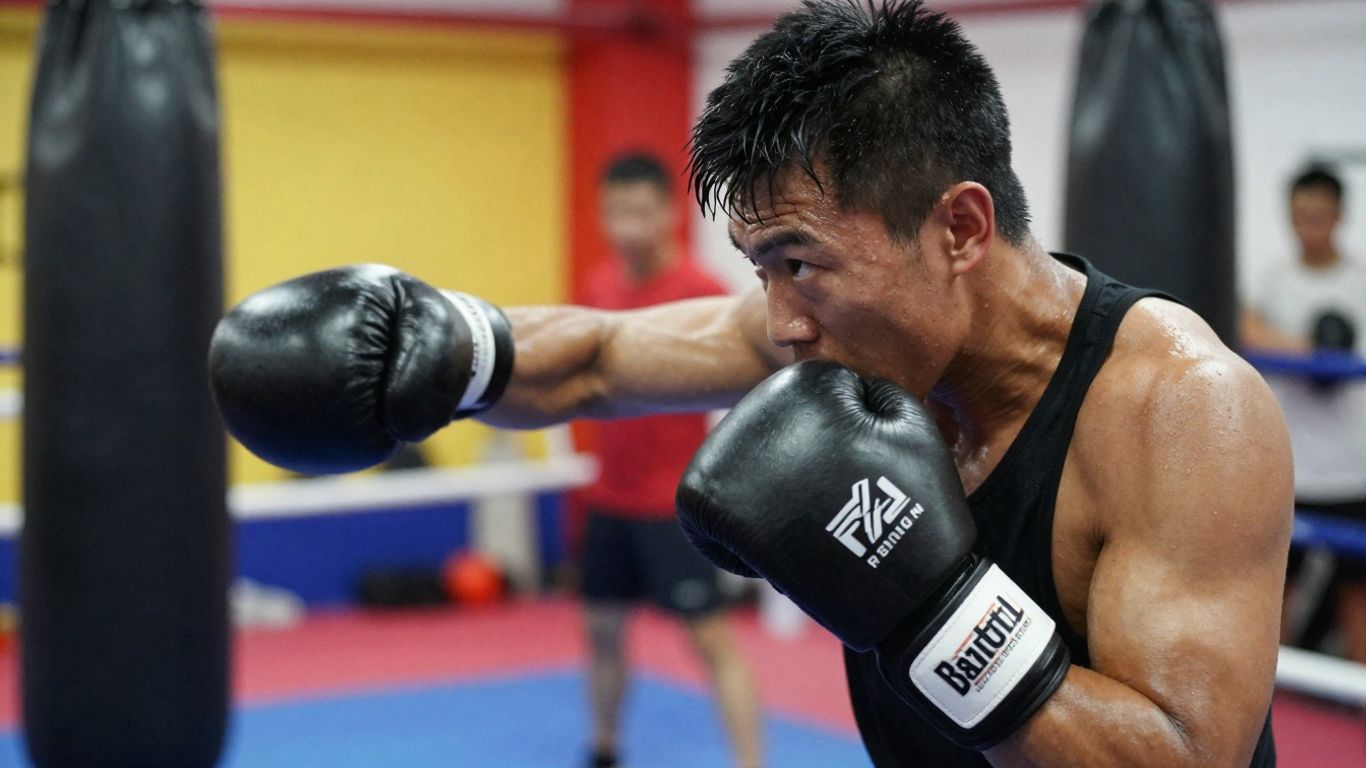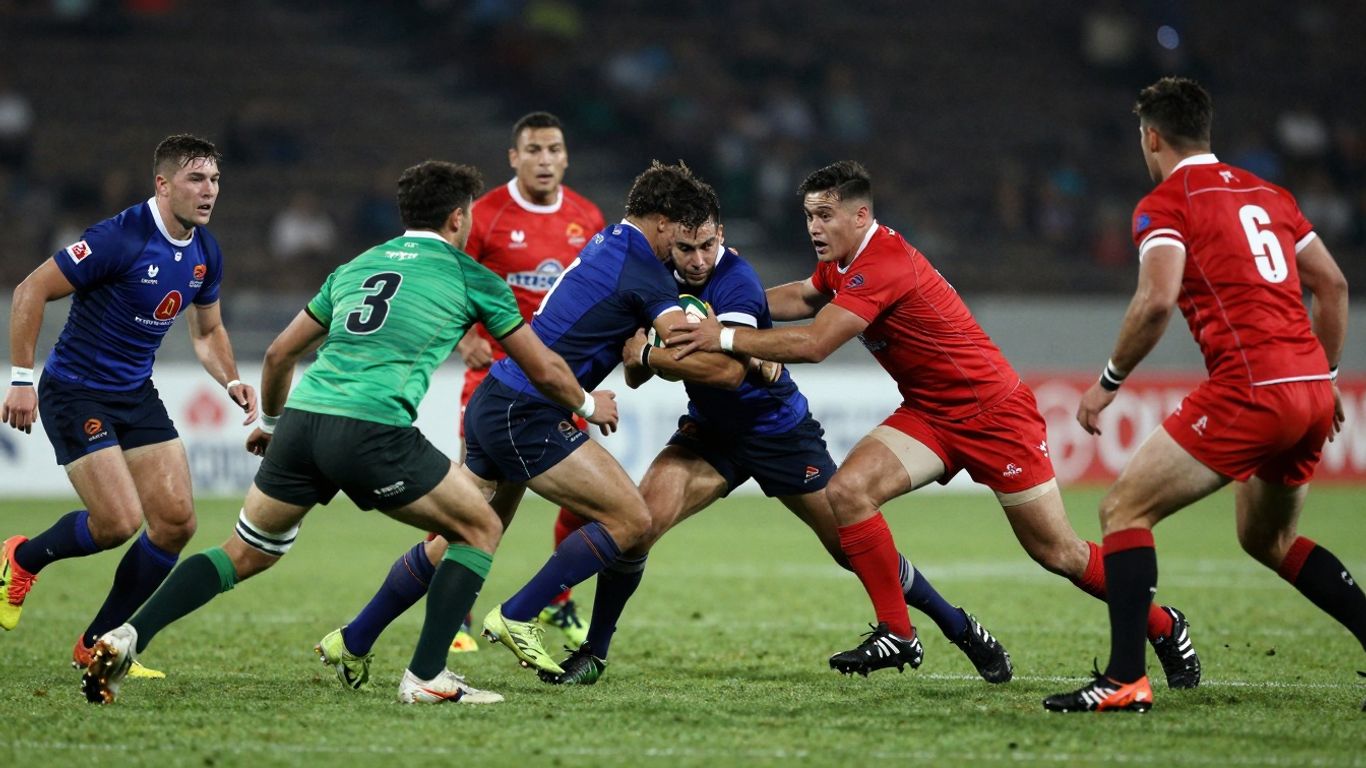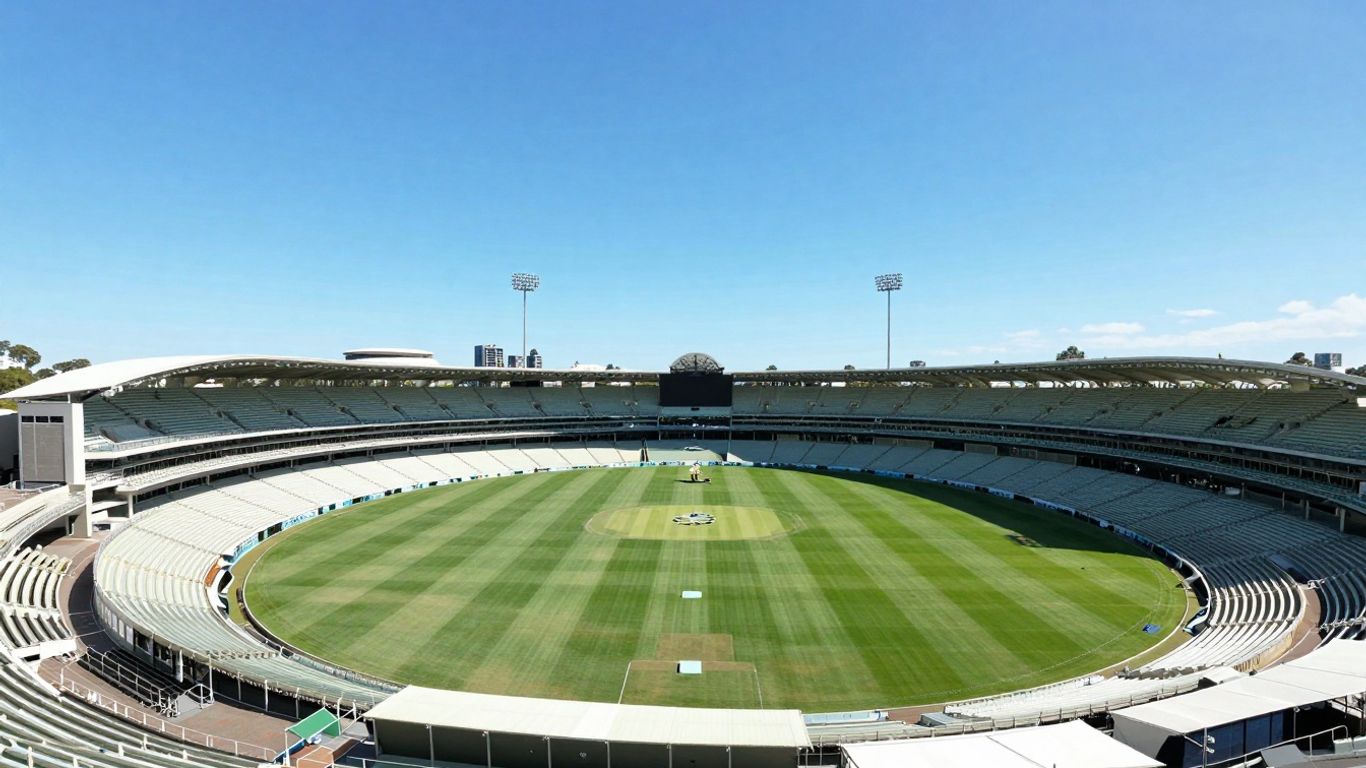Being a goalkeeper isn’t just about stopping shots—it’s about staying sharp, making quick decisions, and keeping your cool when things get heated. If you’re looking to step up your game in 2025, there are a few key things you can work on. Whether you’re just starting out or you’ve been in goal for years, these goalkeeping tips will help you build good habits and feel more confident every time you step onto the pitch.
Key Takeaways
- Practice handling the ball in different conditions to improve your grip and control.
- Work on your positioning so you’re ready for anything, not just shots straight at you.
- Drill safe and effective diving techniques to reach tough corners without hurting yourself.
- Use quick reaction exercises to sharpen your reflexes for unexpected saves.
- Keep communicating with your teammates and trust your decisions to build confidence in goal.
1. Handling
First off, handling is really where it all begins for a keeper. If you can’t hold onto the ball, you end up with a lot of scraps and second chances for the other team, which is every keeper’s nightmare. Solid handling keeps you in control, stops goals, and builds trust with your defenders. Whether you catch a ball clean or parry it smartly out of danger, your hands do the heavy lifting.
There are a few main things to pay attention to:
- Always set your hands in a “W” shape behind the ball, which gives a safer, stronger grip and helps avoid spills (using the ‘W’ hand shape).
- Practise catching balls from different angles and heights, not just straight on. Low, high, or awkward bounces—they all matter.
- Work with a partner throwing unpredictable passes, or mix up ball size and weight to sharpen up your grip on slippery or wet days.
Sometimes, those wet sessions where you can’t feel your fingers end up teaching you the most about focus and control.
If you get these basics right, the rest of your game falls into place. Mess these up, though, and you’re stuck chasing rebounds and dealing with needless pressure. So don’t cut corners when it comes to growing your handling skills—a bit of boring repetition goes a long way.
2. Positioning

When it comes to keeping the ball out of the net, nothing matters more than your positioning. A keeper who stands in the right spot can make even difficult saves look easy, and often doesn’t have to fling themselves around quite so much. Sounds simple, but if you’re a keeper, you know it’s actually a full-time job just staying in the right place.
Here’s what good positioning really means for a goalkeeper:
- Stay in line with the ball, shifting your position as play moves across the field.
- Always know where your goalposts are—being tucked up right on the line could leave too much of the goal open, while too far out exposes you to chips and lobbed shots.
- Protect the near post first if the ball is coming in from an angle. That’s usually the quickest route for a shot to sneak past you.
- Adjust your depth depending on the situation—step forward to cut down the angle on attackers, but drop back a touch if a cross is looming. This is basically a dance. You’ve got to keep moving.
- Keep your body open and ready. Standing square or flat-footed limits your movement, so stay bouncy on your toes.
If you get your positioning right, you start to save shots that would’ve beaten you last season. Don’t be a hero—be clever, be in the right place, and the saves take care of themselves.
3. Diving
Getting good at diving is all about using the right method, not just throwing yourself at the ball every time. Back when I started out, I thought being a good keeper meant flying around the goal for every shot. Turns out, diving with control and purpose is what saves games.
Here are three basic steps to help you improve your diving:
- Push off with your foot for power. This lets you go further and get your hands to balls in the corners.
- Keep your body lined up – don’t twist mid-air. Land with your chest and arms out, keeping the ball close when you hit the ground.
- Only dive when you really have to. Dive for the ball, not for the camera—sometimes a quick step and a controlled save is all you need.
If you’re practising with mates, start on a soft surface. Use simple drills, then add in ball control juggling to keep your hands quick and your feet active.
Diving well takes practice and patience – don’t rush it, and don’t worry about mistakes. Every dive is a step closer to being ready when it counts.
4. Reflex Training
Reacting in the blink of an eye is what separates an average goalkeeper from a standout. In a real match, situations change in a split second: a deflection, a rebound, or a last-ditch shot, and you barely have time to think. Reflex training, therefore, should be a regular part of your sessions and not just an add-on.
- Try using a small tennis ball thrown at you from different angles. The smaller ball makes you focus harder, and your hands have to work much faster.
- Set up a rebound wall or use a partner to fire quick shots in rapid succession. This builds the habit of adjusting instantly to unpredictable bounces.
- Speed ladder drills aren’t only for your feet—they teach you to move quickly and reset your position, which comes in handy for recovery after an initial save.
- Add obstacles, such as cones, in front of the goal to create simulated deflections. When you have to react to awkward ball paths, your game responses improve fast.
- If you want to push reflexes even further, try strobe glasses, which force your brain to process visual information under tougher conditions.
Most keepers think lightning reflexes are all natural talent, but the truth is, anyone can get quicker with the right drills and mindset. Stay sharp, and you’ll start surprising strikers—and yourself—with fingertip saves you didn’t know you had in you.
Don’t forget that improving reaction time is more than just making saves—it means getting your body and mind in sync. Dedicated reflex training drills build confidence so, when the pressure is on, you trust your instincts and commit to the stop.
5. Communication

Being a goalkeeper isn’t just about saving shots—it’s about talking with your team. A keeper who speaks up clearly can stop trouble before it starts. You’re in the best spot on the pitch to see what’s coming, so use that to guide your defenders.
Here’s how you can improve your communication on the field:
- Call out when you’re coming for the ball—don’t let your defenders guess
- Give short, sharp instructions to your backline (like "push up", "mark left", or "man on!")
- Always encourage your teammates after mistakes—don’t just point fingers
Communication also isn’t all about yelling. Sometimes it’s reading body language or giving a nod that lets your team know you’re switched on. If something needs fixing, say it right away, but don’t be afraid to praise good work too.
The best goalkeepers I’ve played with turn chaos into order, not by making flashy saves, but by making everyone on the pitch feel safe and organised. It’s much more about being steady and supportive than barking orders all match.
You’ll find that strong communication supports teamwork, and teamwork is a big part of success in football—just ask anyone who values cooperation and discipline on the pitch.
6. Decision-Making
Good goalkeepers aren’t just quick on their feet—they’ve got sharp minds, too. Decision-making makes or breaks you in this position, and sometimes, that split-second choice is the difference between a calm save and a goal that could have been stopped. You want your choices to seem natural, not forced, and this only comes from heaps of practice.
Here are a few ways to get those decision-making skills match-ready:
- Work through match scenarios in training. Make sure you practise one-on-ones, crosses, quick restarts, and all those odd bounces you see in games.
- Review game footage regularly. Have a sit-down and see where you made the right call—and where you didn’t. Take notes; you’ll spot patterns in your reactions.
- Understand your team’s tactics. If your team is switching to something like a defensive formation, know how that might affect when you come off your line or how you position for set pieces.
- Talk with your teammates. Good communication on the pitch can cut down on awkward decisions, especially for through balls and back-passes.
Sometimes you have only a heartbeat to decide whether to sweep up, stay back, or release the ball quickly after a save. Getting these choices right can change the whole mood of the match for your team.
Stay switched on and don’t get bogged down if things go wrong. Every match is a new chance to sharpen up your judgement, learn, and grow as a goalkeeper.
7. Confidence
Confidence is the backbone for any goalkeeper, whether you’re stopping shots on a freezing Sunday morning or stepping out in front of a big crowd. Without it, even the simplest saves start to feel like mountains. It’s funny how quickly things can unravel when your self-belief dips – hesitation, nervy mistakes, second-guessing every move. But here’s the thing: confidence isn’t magic, it’s built, bit by bit, through what you do long before the whistle blows.
Here are a few practical approaches to boost your confidence between the posts:
- Prepare properly before each match, not just physically but mentally. Going into a game clear-headed and familiar with your team’s tactics lets you focus on what matters.
- Work with your coach to address weak spots rather than ignoring them. The more situations you’ve faced in training, the fewer surprises you’ll get when it counts.
- Don’t shy away from making noise on the field. Shouting instructions or calling for the ball, even when you’re unsure, can trick your mind (and sometimes your opponents!) into believing you’re in total control.
- Mistakes are going to happen. What matters is not letting them haunt your next play. Shake it off quickly.
There’ll be days when nothing seems to go right, but you owe it to yourself to act confident, even if you don’t feel it. Sometimes just standing tall and being loud is enough to swing the momentum back in your favour.
No single session or game will fix everything overnight. Confidence is about persistence, and the more you back yourself, the more those small wins add up. Remember: it’s OK to fake it sometimes, as long as you keep moving forward.
Wrapping Up
So, there you have it—seven simple tips to help you get better at goalkeeping in 2025. It’s not always easy, and some days you’ll feel like you’re not making any progress at all. But if you keep at it, work on your basics, and remember to stay calm under pressure, you’ll start to see changes. Every keeper has good days and bad ones, but what matters is showing up and giving it a go. Keep practising, listen to your coaches, and don’t be afraid to make mistakes. That’s how you learn. Good luck out there, and here’s hoping you keep plenty of clean sheets this season!
Frequently Asked Questions
How can I get better at catching the ball as a goalkeeper?
To get better at catching, practise with different types of balls and in all kinds of weather. Focus on using both hands, keeping your eyes on the ball, and making sure your hands form a ‘W’ shape behind the ball. Practising regularly will help you feel more comfortable and confident.
Why is positioning so important for goalkeepers?
Positioning is key because being in the right place makes it easier to stop shots. If you stand in the best spot, you don’t have to dive as far or move as much. Good positioning helps you cover more of the goal and react faster to shots.
How do I improve my diving skills?
Start by learning the correct way to dive safely. Practise on soft surfaces first, like grass. Work on pushing off with your legs, keeping your body straight, and landing on your side to avoid injury. The more you practise, the easier and safer diving will feel.
What can I do to make my reflexes faster?
You can improve your reflexes by doing quick reaction drills, like catching balls thrown from different directions or using a reaction ball that bounces in odd ways. Playing small-sided games and listening for audio cues, like the sound of a kick, can also help you react faster.
Why is it important for goalkeepers to talk to their teammates?
Talking to your teammates helps everyone stay organised. As a goalkeeper, you can see the whole field, so you can warn defenders about dangers or tell them where to stand. Good communication stops mistakes and helps your team defend better.
How can I build confidence as a goalkeeper?
Confidence comes from practising a lot and being prepared. The more you train, the more ready you’ll feel during games. Try to focus on the present moment and don’t let mistakes upset you. Remember, every goalkeeper makes errors—what matters is learning from them and moving on.





